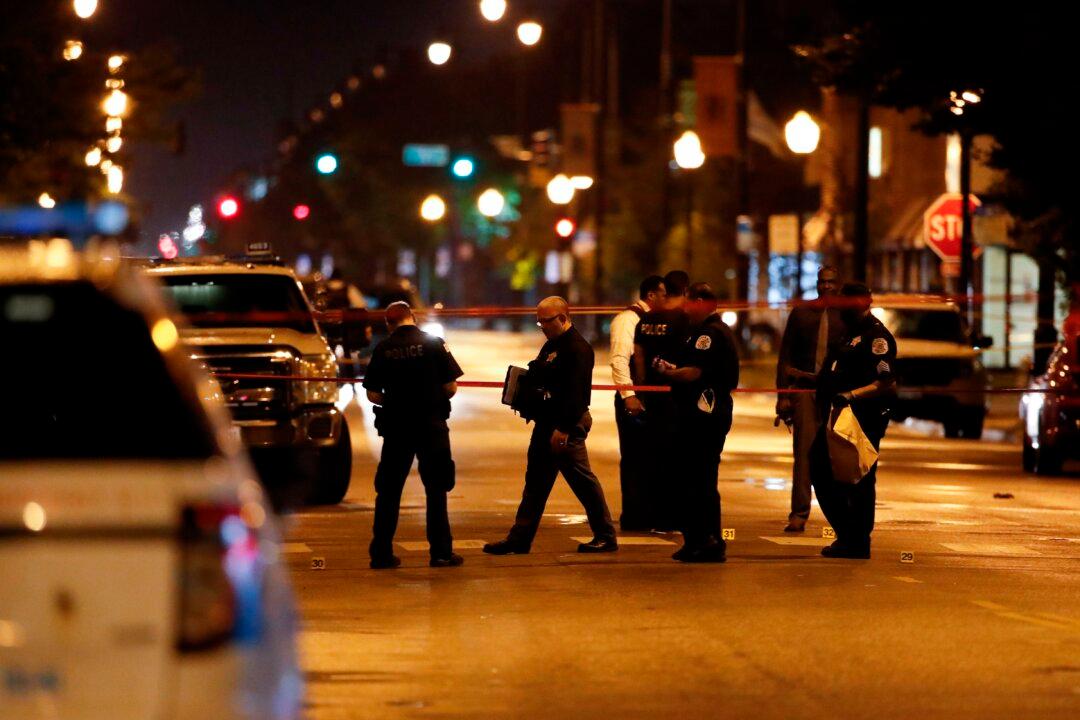Murders spiked in major American cities since the death of George Floyd amid a push to slash police funding, according to a new analysis.
The rise in homicides in 10 major cities last year coincided with police making fewer arrests and stops, the Law Enforcement Legal Defense Fund found.





